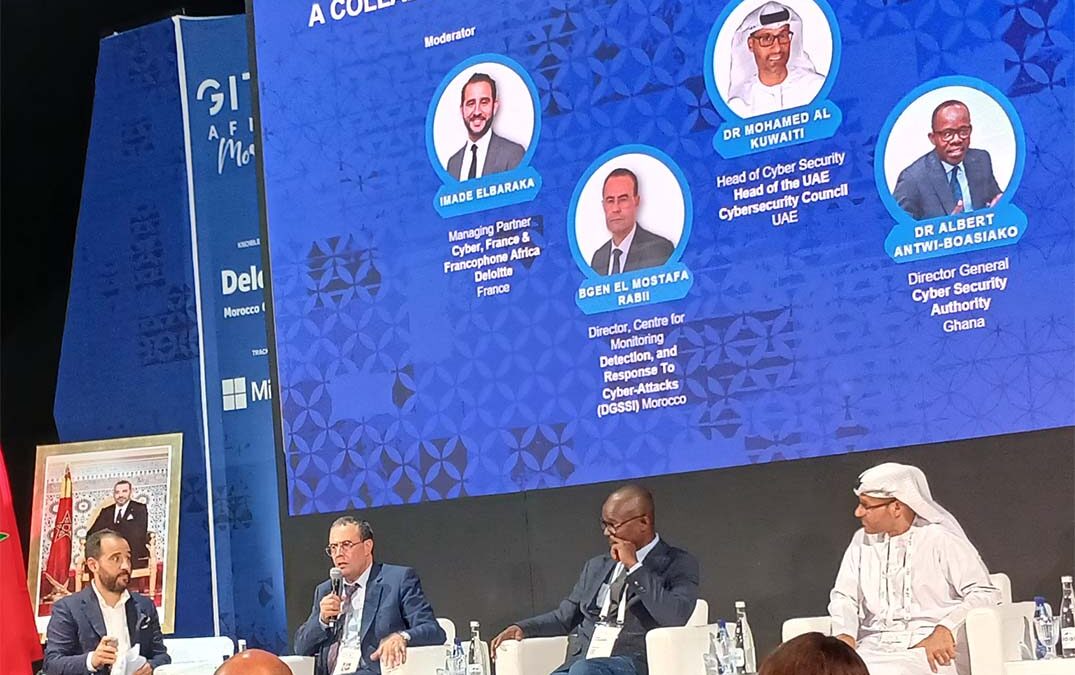Kathy Gibson reports from Gitex Africa Morocco 2024 – African countries should make a concerted effort to combine resources in their bid to build regional cyber resilience.
This is the call from Dr Albert Antwi-Boasiako, director-general of the Ghana Cyber Security Authority, who points out that collaboration at all levels is needed to achieve this goal.
For instance, he says Ghana has achieved some results in the last few years through collaboration between government and the private sector.
“It is important to look at the different layers collaboration, with cybersecurity strategies that span different agencies and sectors.”
Underpinning this collaborative approach is the country’s cybersecurity legislation, and a clear identification of roles and responsibilities.
“At a continental level, different countries are doing different things well, but there is a missing link: we need to integrate the efforts we have all made. We should look to bring together the efforts we are all making in our respective countries.”
Smart Africa could be the vehicle for doing that, Dr Antwi-Boasiako says.
Smart Africa is a commitment from African heads of state and government to accelerate sustainable socio-economic development on the continent, with the aim of driving a knowledge economy on the continent through affordable access to broadband and the use of ICT.
“As Africans, we need to reorganise ourselves to be more integrated. That would put us in a position to collaborate with the rest of the world.”
Digitalisation is a pressing issue for all countries, and Africa must ensure it is not left behind, he adds.
“By 2025, the world’s GDP will be digital, with our economies driven by digitalisation. So we need to ensure we can sustain the development, driven by the cyber agenda.”
Effective collaboration is not a trivial task, points out Mohamed Al Kuwaiti, head of cyber security in the United Arab Emirates government.
“A ransomware attack is a good example,” he says. “It does not differentiate between a company or government. When it happens, we need to reach out to other organisations and states to find out how they address the risk.”
These dialogues cannot be effective unless there is full transparency, and they are based on good relationships.
“We cannot just be talking when there is an incident,” Al Kuwaiti says. “We need to be having regular workshops and discussions so we can to help one another to build resilience and bring expertise to one another’s domains.
“It needs to be a peer-to-peer type of relationship, and it has to be built up over many stages.”
Dr Antwi-Boasiako agrees that building cyber resilience is a journey. “Every transformation takes time.
“And the maturity levels of African countries are not the same: we are all at different phases of the journey.
“But there are certain baseline requirements we all need to adhere to.”
The Malabo Convention could be that vehicle, Dr Antwi-Boasiako says.
“The challenges to achieving cyber resilience are obvious, and include capacity, technology, infrastructure and skills gaps. But if we are able to start collaborating, we can share and learn from each other.”
“Within the region there are many initiatives – and it is becoming obvious that, at a continental level, we must collaborate to survive. The cyber resilience in your country is intrinsically linked to the cybersecurity of my country.”

